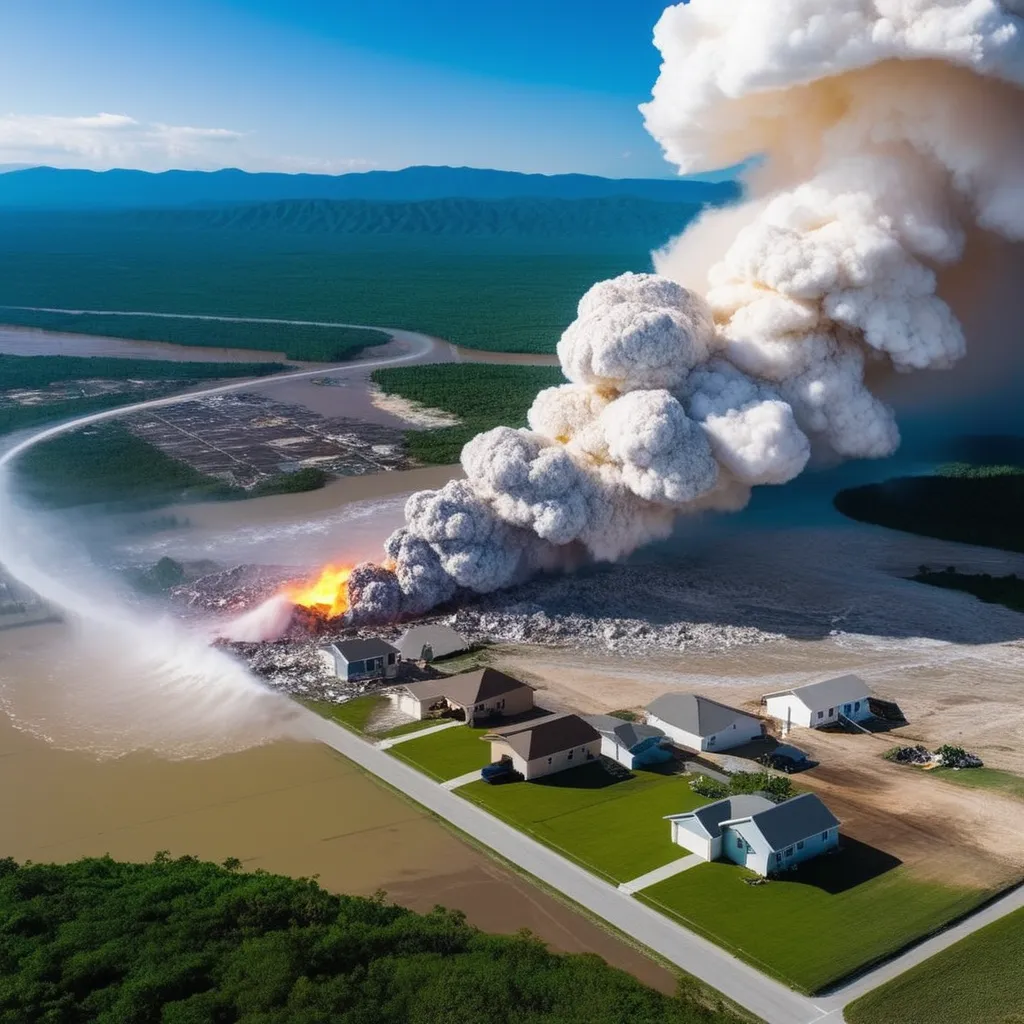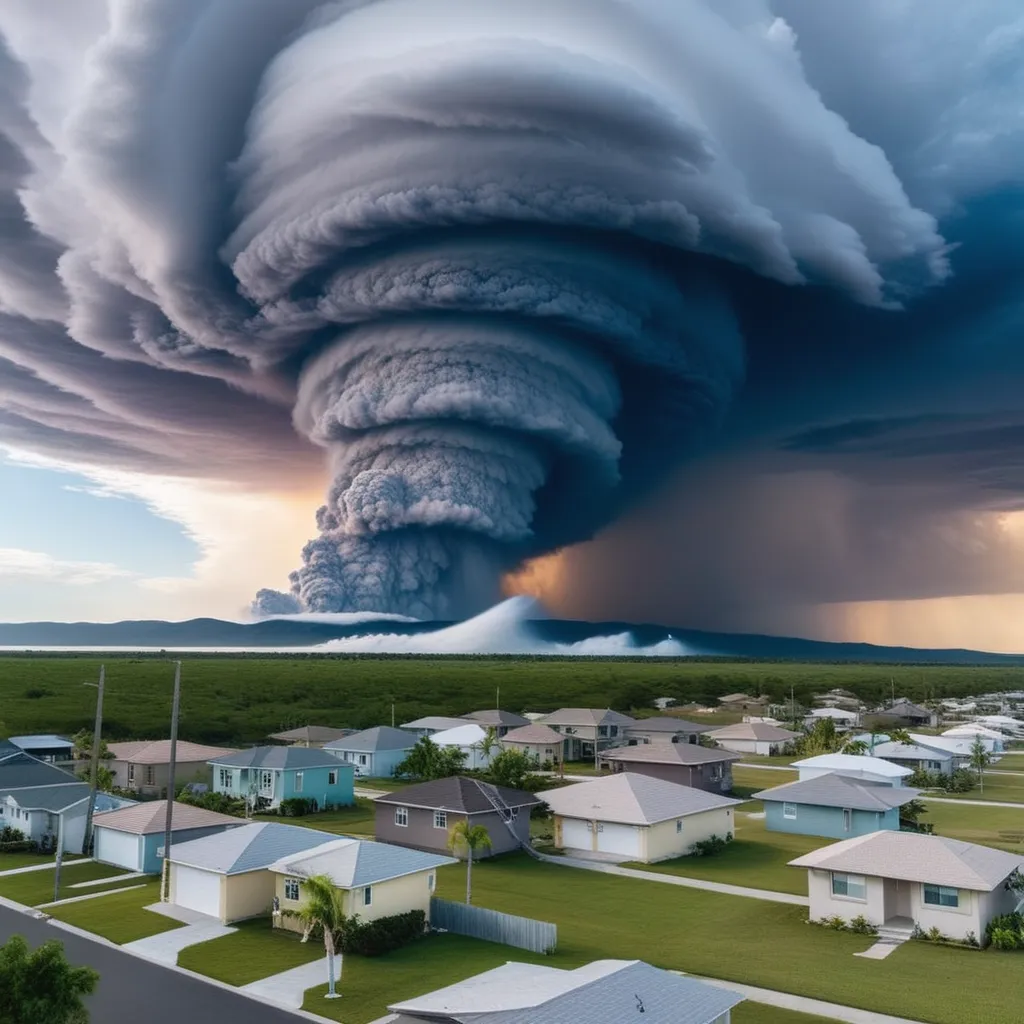AI Predicts Natural Disasters with Unprecedented Accuracy
When it comes to natural disasters, like hurricanes, earthquakes, and wildfires, every second counts. Early warnings and accurate predictions can save lives and reduce the impact of these devastating events. Recent advancements in artificial intelligence (AI) have brought us closer to this goal than ever before. As someone who once experienced the terrifying power of a flash flood, I can't help but be fascinated by the potential of AI to predict and mitigate natural disasters.

The Power of Personal Experience
Before we delve into the exciting developments in AI-driven natural disaster prediction, allow me to share a personal experience that underscores the importance of early warnings.
1. The Flash Flood
A few years ago, I found myself in the midst of a sudden and unexpected flash flood while hiking in a picturesque canyon. The clear skies had given no indication of the impending danger, but within minutes, the calm stream we were crossing turned into a raging torrent. It was a harrowing experience that taught me just how swiftly nature can change its course.
2. Gratitude for Technology
During that incident, I couldn't help but think about the critical role that technology plays in modern disaster preparedness. We had a smartphone with us, which allowed us to call for help and receive updates about the unfolding situation. It was a stark reminder of the importance of timely information.
AI Revolutionizing Disaster Prediction
Now, let's explore how AI is revolutionizing our ability to predict natural disasters.
1. Early Warning Systems
AI-powered early warning systems are becoming increasingly sophisticated. Machine learning algorithms analyze vast amounts of data from various sources, including weather satellites, seismic sensors, and historical disaster records. This analysis enables these systems to detect subtle patterns and anomalies that human experts might miss.
2. Earthquake Prediction
One of the most significant breakthroughs is in earthquake prediction. Traditional methods have limitations, but AI models can analyze data in real-time and identify precursors to seismic activity. While earthquake prediction remains challenging, AI has the potential to provide valuable seconds or minutes of warning, which can make all the difference in areas prone to quakes.
3. Wildfire Forecasting
In regions susceptible to wildfires, AI is being used to predict fire outbreaks and their trajectories. This information helps emergency services allocate resources more effectively and issue evacuation orders in advance. This can be a game-changer for communities facing the increasing threat of wildfires.
4. Hurricane Tracking
Hurricane forecasting has also benefited from AI. Predicting the path, intensity, and speed of hurricanes is a complex task, but AI algorithms process data from multiple sources to provide more accurate predictions. This helps authorities prepare and respond more effectively to these massive storms.
The Future of Disaster Preparedness
While AI has made impressive strides in disaster prediction, there's still much work to be done.

1. Global Data Sharing
To improve the accuracy of predictions further, global data sharing is crucial. Countries and organizations must collaborate and share data openly to build comprehensive AI models that can detect patterns and trends on a global scale.
2. Public Awareness
Public education about the benefits and limitations of AI-powered early warning systems is vital. People need to understand how these systems work, what kind of information they can provide, and how to respond to alerts.
A Safer Future
As we continue to witness the power of AI in predicting natural disasters, we can't help but feel a sense of hope. These advancements are transforming disaster preparedness, giving communities more time to evacuate, and allowing responders to allocate resources more efficiently.
In conclusion, AI's role in predicting natural disasters with unprecedented accuracy is a testament to human ingenuity and the potential of technology to save lives. While we can't control the forces of nature, we can harness AI's capabilities to minimize the impact of these events on our communities. As we look to the future, let's continue to invest in AI-driven solutions for disaster preparedness, making the world a safer place for generations to come.<

No comments:
Post a Comment